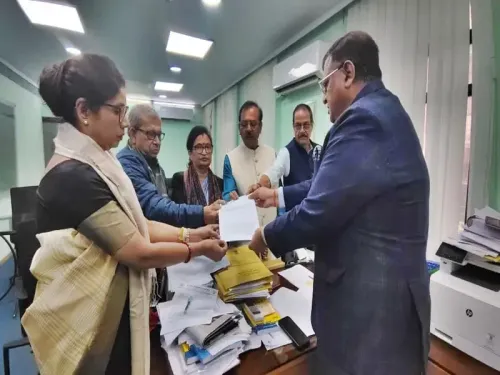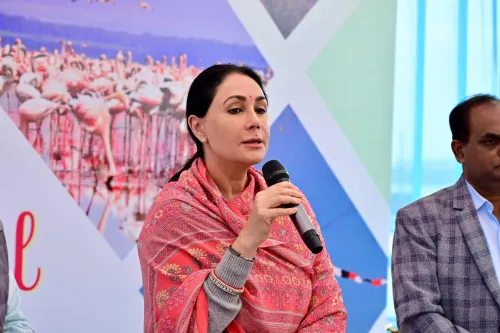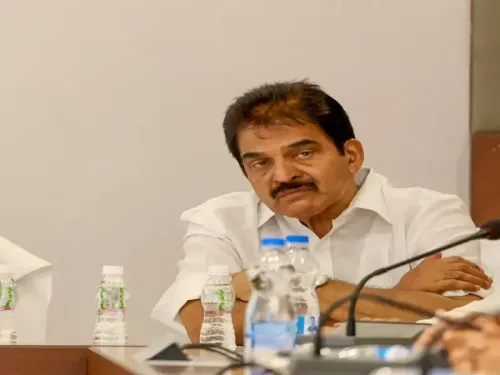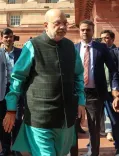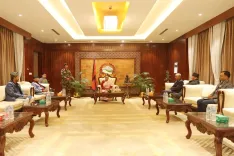How Can Interim PM Karki Restore Governance Trust in Nepal?
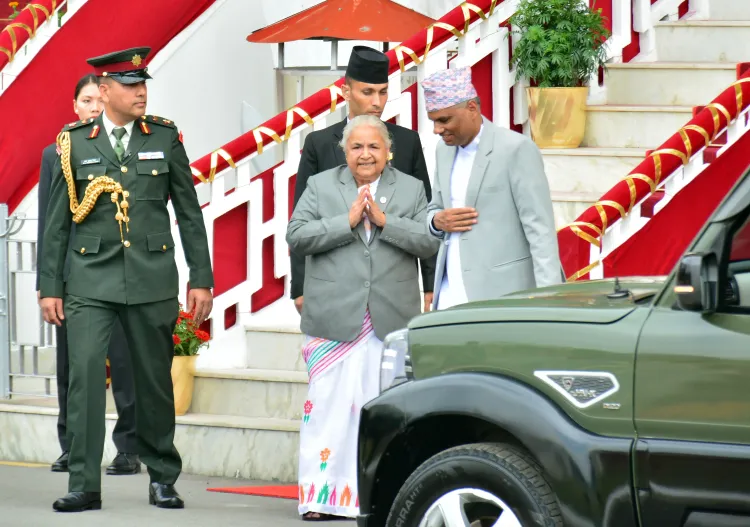
Synopsis
Key Takeaways
- Nepal is experiencing a political upheaval marked by mass protests against corruption.
- Sushila Karki has been appointed as the interim Prime Minister amid this crisis.
- Protests were initially sparked by a social media ban but grew to encompass broader issues of governance.
- Public trust in governance needs to be rebuilt to ensure democratic stability.
- The upcoming elections in March 2026 will be pivotal for Nepal's political future.
Kathmandu, Sep 20 (NationPress) In a significant turn of events, Nepal has joined the ranks of nations where public mobilization has led to the ousting of the ruling government, driven by widespread anger over corruption, nepotism, and administrative mismanagement, according to a report released on Saturday.
The report indicates that this mass uprising is part of a larger trend of political upheaval across South Asia, following similar occurrences in Sri Lanka in 2022 and Bangladesh in 2024, signifying a pivotal shift in the democratic path of the Himalayan nation.
As highlighted by the International Centre for Peace Studies (ICPS), a distinct pattern of youth-led protests and uprisings, often labeled as ‘apolitical’, has emerged in the broader region encompassing Nepal, Sri Lanka, Bangladesh, and Indonesia over the past three years.
The report notes, “These ‘apolitical’ uprisings, at times influenced by both internal and external entities with vested interests, frequently lead to a political vacuum filled by individuals or groups lacking governance experience.”
“Ironically, the movements’ proclaimed goals—like bolstering democracy and ensuring inclusive political participation—are often compromised during the upheaval. Though they may succeed in toppling governments through mass action, they generally struggle to provide a structured alternative in the aftermath,” it further stated.
The protests commenced on September 8 in Kathmandu, triggered by the government’s decision to block 26 social media platforms, including Facebook, Instagram, WhatsApp, X, and YouTube, for not adhering to a seven-day registration deadline with the Ministry of Communication and Information Technology. However, this ban merely acted as a catalyst.
“The protest quickly transformed into a broader movement demanding accountability for rampant corruption, rising inequality, and deteriorating living conditions that have compelled many citizens to seek better opportunities abroad. Protesters expressed their outrage over the glaring disparity between the hardships faced by ordinary citizens and the opulent lifestyles of the ruling elite (Nepo Kids), many of whom publicly showcase their wealth on social media,” the report emphasized.
In response to mounting public and political pressure, Nepal's Prime Minister KP Sharma Oli resigned on September 10. Several prominent leaders, including Home Minister Ramesh Lekhak and various ministers overseeing health, agriculture, water, and youth and sports, also stepped down as the crisis escalated.
The ICPS report underscores the pivotal role of Sushila Karki, who has been appointed as Nepal's interim Prime Minister following the Gen-Z uprising. She faces an enormous challenge: to stabilize the nation, restore public trust in governance, advocate for systemic change to enhance representation of women and marginalized communities in politics, and prepare for the upcoming elections scheduled for March 2026.


